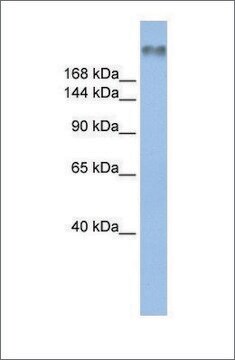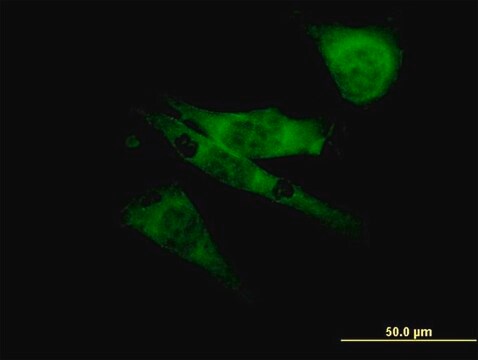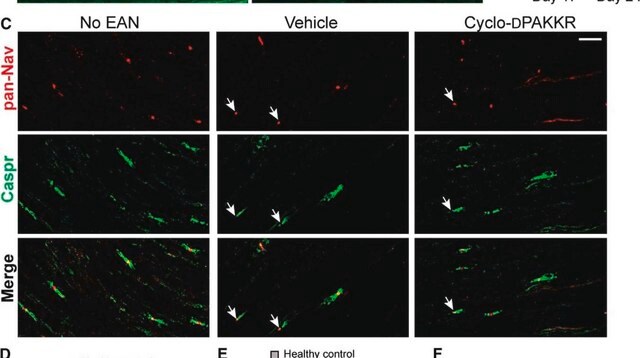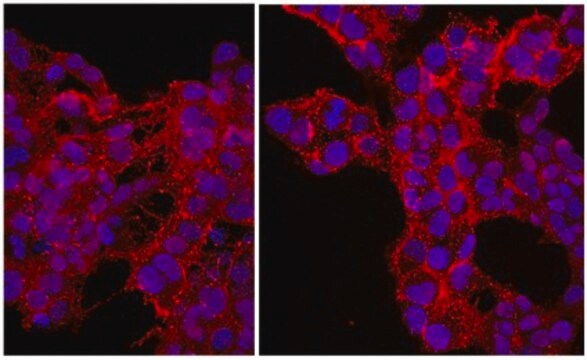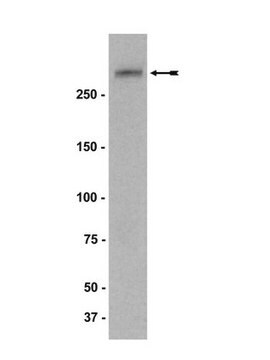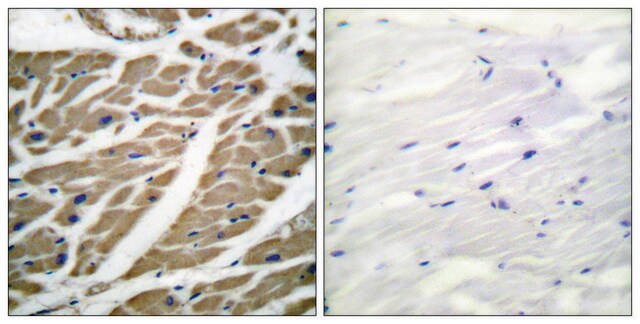AB5580
Anti-SCN8A Sodium Channel Antibody
Chemicon®, from rabbit
Sinonimo/i:
Sodium Channel Nav1.6, NaCh6, PN4, CerIII
About This Item
Prodotti consigliati
Origine biologica
rabbit
Livello qualitativo
Forma dell’anticorpo
affinity purified immunoglobulin
Tipo di anticorpo
primary antibodies
Clone
polyclonal
Purificato mediante
affinity chromatography
Reattività contro le specie
rat, mouse
Produttore/marchio commerciale
Chemicon®
tecniche
immunocytochemistry: suitable
immunohistochemistry: suitable
western blot: suitable
N° accesso NCBI
N° accesso UniProt
Condizioni di spedizione
wet ice
modifica post-traduzionali bersaglio
unmodified
Informazioni sul gene
human ... SCN8A(6334)
Descrizione generale
Specificità
SPECIES REACTIVITIES: It is expected that the antibody will also work on mouse (20/20) and human (19/20) due to sequence homology. Other species have not been tested.
Immunogeno
Applicazioni
Immunohistochemistry on fixed frozen sections.
Immunocytochemistry on rat dorsal root ganglion primary culture (1:100)
Dilutions should be made using a carrier protein such as BSA (1-3%)
Optimal working dilutions must be determined by the end user.
Altre note
Note legali
Non trovi il prodotto giusto?
Prova il nostro Motore di ricerca dei prodotti.
Indicazioni di pericolo
Consigli di prudenza
Classi di pericolo
Aquatic Chronic 3
Codice della classe di stoccaggio
11 - Combustible Solids
Classe di pericolosità dell'acqua (WGK)
WGK 3
Certificati d'analisi (COA)
Cerca il Certificati d'analisi (COA) digitando il numero di lotto/batch corrispondente. I numeri di lotto o di batch sono stampati sull'etichetta dei prodotti dopo la parola ‘Lotto’ o ‘Batch’.
Possiedi già questo prodotto?
I documenti relativi ai prodotti acquistati recentemente sono disponibili nell’Archivio dei documenti.
Il team dei nostri ricercatori vanta grande esperienza in tutte le aree della ricerca quali Life Science, scienza dei materiali, sintesi chimica, cromatografia, discipline analitiche, ecc..
Contatta l'Assistenza Tecnica.